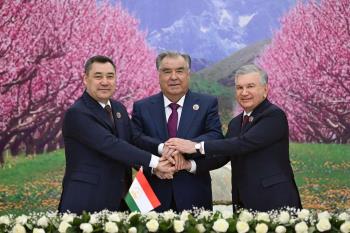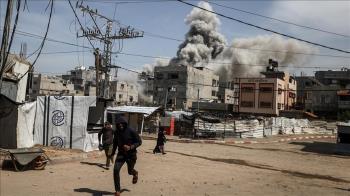Alwaght- United Arab Emirates which has always been known for its high economic ambitions, after the recent developments in the West Asia has adopted military adventurism in the region. From the perspective of the Foreign Policy Online Magazine, the UAE military operations outside the country in Libya, Bahrain and Yemen are perceived as a startling change in the political behavior of a small power which is under pressure, a shift that requires a change in attitudes and approaches of rich and small powers such as UAE and Qatar.
As the political structure of the UAE is based on hereditary monarchy, it is subject to the risk of the legitimacy crisis and is suffering from the incongruous political structure in the emirates of Dubai and Sharjah. The UAE has also been involved in a security puzzle resulted from the geopolitical weakness. Accordingly, it had appropriately based its foreign policy on good neighborly relations with its neighbors and other actors of the region. However, the economic growth of the UAE over the past decade and the changes following the developments after the Islamic Awakening have made way for the miscalculation that it can get rid of its historical fear and create a safe margin for itself through militarism and making an alliance with influential regional and trans-regional actors.
Therefore, in 2011 the UAE actively participated in the implementation of a ‘no-fly zone’ over Libya, and already there are reports of a UAE think tank in the Western region of al-Zintan in Libya for consultation and financial assistance to General Khalifa Belqasim Haftar. In March 2011, in the framework of the Shield Forces, the UAE entered Bahrain Island, but the adventures of Abu Dhabi was not limited to these two countries and in various operations, including “the Storm of Resolve” and ‘the Golden Arrow” made attempts to change the military equations in South Yemen.
While the militarism of the UAE is a response to recent years developments in the region and psychological needs of this actor, concurrent with the recent developments in the region, the appetite of this rich emirate to buy weapons has significantly increased, to the extent that this small country with a population of less than five million, is among countries with the highest military budget. After Saudi Arabia, India and China, the UAE is the fourth largest arms importer which purchased $ 23 billion weapons and military equipment over the last year.
Over the last ten years, the UAE with the support of France has allocated enormous sums of money to create the largest ground force among the countries in south of the Persian Gulf. This investment has not been limited to the country's ground forces, and this coastal country, thanks to its partnership with ship building companies such as ADSB and CMN has highly equipped its own shipping fleet. On the other hands, thanks to military support of the US and France, the air force of the UAE is also one of the highly equipped aircraft fleets in the West Asia.
The main point is that after recent developments in the West Asia, the nature of arm purchases of the United Arab Emirates, has mainly metamorphosed from the purchase of defensive weapons and missile defense systems for warning, intercepting and destroying the short range ballistic missiles, like Todd system, as at the time being it has shows more tendency towards the purchase of offensive weapons.
The nature of unbridled military adventure of the UAE is in a way that affects the feasibility of convergence with friendly countries such as Saudi Arabia in times of crisis, because the adventurous military doctrine of the UAE does not follow any rational trend. Differences between the UAE and Saudi Arabia over Yemen and forming a separate military branch in Aden operation, without taking into account the its military limitations, show that military and foreign policy of the UAE is far from rationality.
The military doctrine of Abu Dhabi for such a high risk, entails greater convergence with trans-regional actors such as the US and France, through shouldering more responsibility for regional security crises. The visit made by the UAE delegation and senior military officials of the country to Washington headed by Mohammed bin Zayed, is perceived as the attempts of the UAE to renew military and strategic agreements with the US to deal with the consequences of the growing militarization of the UAE and taking a pivotal role in the new US architecture for the regional security in the West Asia.


























